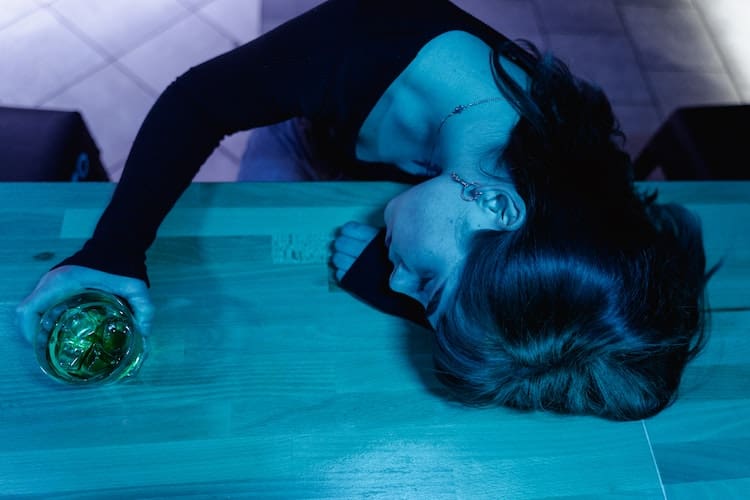Blackouts are often a warning sign that a person’s drinking is out of control. These gaps in memory due to alcohol use occur in about half of all adults who drink. Unlike passing out, where a person loses consciousness, a person remains awake during a blackout even though their brain is not making memories. A person who continues to experience blackouts after drinking may have an alcohol addiction that needs to be treated before something more serious occurs.
What is a Blackout?
According to the National Institute on Alcohol Abuse and Alcoholism, alcohol-induced blackouts are memory gaps that occur when a person is intoxicated due to drinking an excessive amount of alcohol. Blackouts can block memories from moving from the short-term to the long-term area of the brain. This memory loss can either be temporary or permanent. Some people may regain their memories later, but others may never recall the events that occurred during a blackout.
Those who are most likely to blackout are those:
- With a blood alcohol level (BAC) of 0.16 or higher
- Who take sleep and anti-anxiety medications along with drinking
- Who binge drink
Each person processes alcohol differently. Depending on age, weight, and genetic predisposition, some people may be at a higher risk for blacking out. Those who may not have eaten before drinking alcohol or who drink alcohol quickly may also be at a higher risk for blacking out. Women, teens, and younger adults may also experience more blackouts than others.
Signs of a Blackout
Since the person remains awake and alert during a blackout, it may not be obvious to others that they are experiencing one. They may be able to walk or engage in a conversation. They may even appear as if they can drive a vehicle. While they may be able to do these things, they will not be able to create a memory of these events.
During a blackout, the person may be showing signs of intoxication, such as:
- Slurred speech
- Confusion or agitation
- Difficulty walking or standing
- Poor judgment or decision-making
- Risky behavior
- Headaches
- Nausea
- Blurred vision
A blackout may not be discovered until the person has trouble recalling the events that happened while intoxicated. They may not be able to answer questions or give details about the time of the blackout.
A blackout can vary in time ranging from a few minutes to hours. It will last until the person has eliminated all alcohol from their body. Not everyone metabolizes alcohol at the same rate, so this time can vary. If a person continues drinking during a blackout, they may have trouble remembering events for hours to days after.
Why Blackouts are Dangerous
When a person begins experiencing blackouts when drinking, this not only indicates a more serious issue but can also be dangerous over time. Continued blackouts can change a person’s personality, behavior, and mood – not only while the person is intoxicated but even when they are sober. Frequently blacking out can affect a person’s sleep, concentration, and coordination.
A person can be at a higher risk for dangerous behaviors while blacking out, such as:
- Injuring themselves or others
- Driving while intoxicated
- Engaging in risky behaviors such as drug use or unprotected sex
- Fighting with others
- Criminal activities such as theft or vandalism
- Arrests or hospitalization
Not every person who experiences a blackout has an alcohol addiction, but frequent blackouts can certainly indicate cause for concern. If a person is drinking to the point where they cannot recall events or actions, this is not something that should be brushed over or ignored. You may want to seek professional help or put your loved one in touch with someone who can help them take the next steps toward treatment.
Our Indiana Recovery Center Can Help
Are you or a loved one struggling with a substance use disorder? If so, Anabranch Recovery Center in Terre Haute can help. We can put you on the path to recovery and design a program to meet your individual needs. To find out more about our residential or detox programs, contact our team of professionals by filling out our confidential contact form online.




